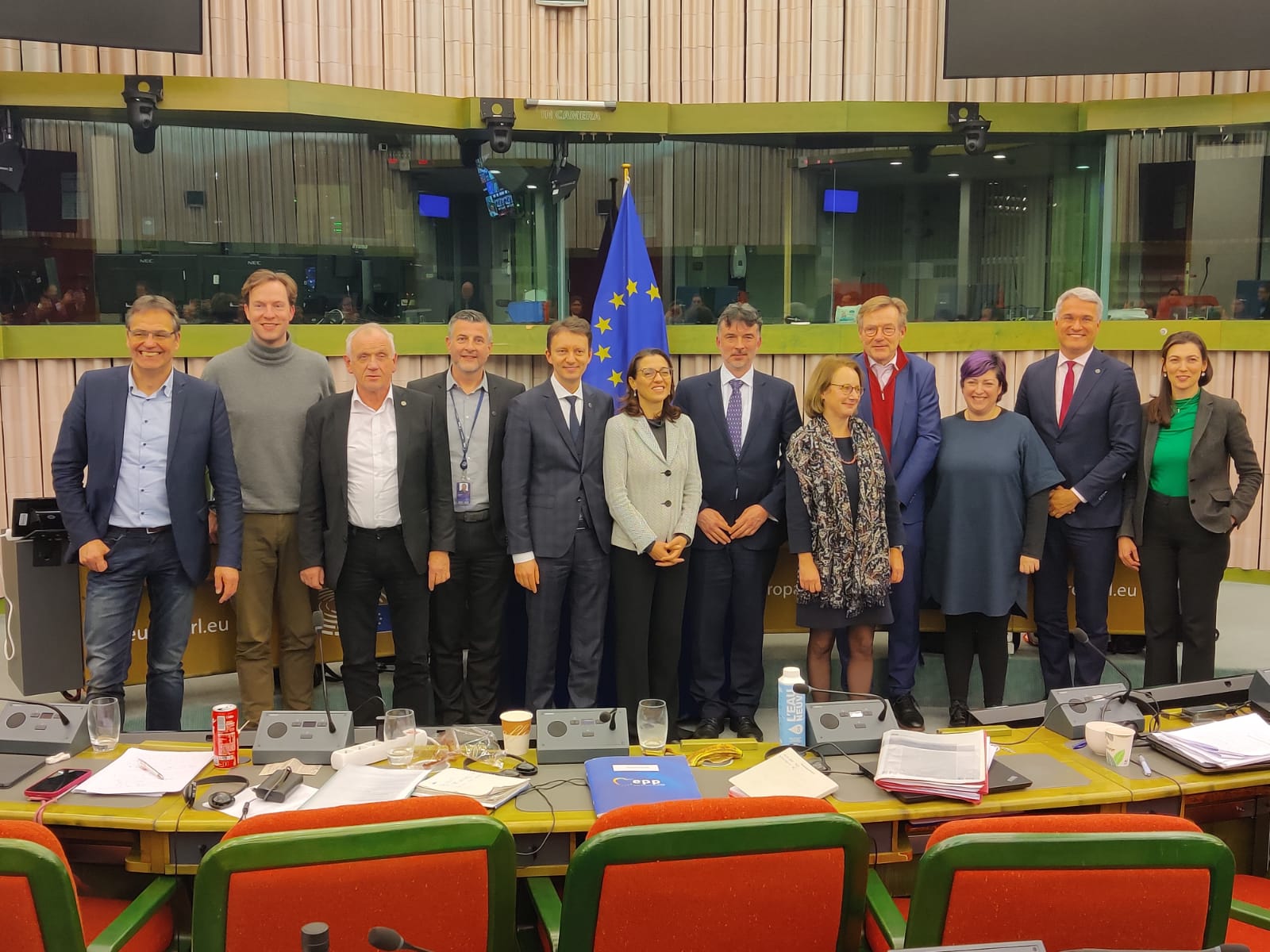Up to 300 billion euros to become independent from Russian energy imports and push down prices / Ambitious climate protection target will not be touched
“This is an important step in jointly tackling the three most important crises of the last weeks and months," said Peter Liese on the occasion of the agreement reached between Parliament and Member States on REPowerEU on Wednesday morning. "It is imperative that we become independent from Russian energy imports. Since the outbreak of the war, we have paid over 120 billion euros for energy supplies to Russia. That is significantly more than the Russian military budget accounted for last year. At the same time, we urgently need to ensure that citizens and industry are relieved of high energy costs. But all this must not be at the expense of climate protection. Our 2030 targets are in place. I am very pleased that we have succeeded in reaching this agreement."
REPowerEU will provide EU member states with a sum of up to €300 billion to tackle the energy crisis, for example by creating alternatives to Russian energy imports through cross-border power lines or LNG terminals. A big part of the money comes from unspent loans from the Recovery and Resilience Facility. Another part of the sum will be made available by reallocating money from the Regional Fund. The only fresh money comes from an intervention in the EU’s emissions trading system, for which Peter Liese was the European Parliament's lead rapporteur. "The intervention in the emissions trading system will not lead to a weakening of our climate targets. On the contrary, we have reached a compromise which, firstly, provides for a different timing of the auctioning process. Allowances that were not supposed to be auctioned until the second half of the decade will now be auctioned earlier so that the money is available sooner. This increases the ambition in the second half of the decade, but this is firstly necessary for climate protection and secondly also possible if we have more renewable energies and energy efficiency in Europe through REPower and other measures," said Liese, environmental policy spokesman for the largest group in the European Parliament (EPP, Christian Democrats).
Very controversial was an intervention in the Innovation Fund, which is supposed to enable European industry to invest in CO2-free production of steel, cement, chemicals and so on. The Council had envisaged a massive cut and wanted to take 15 billion from this fund for REPowerEU, without answering the question of how industry would then afford decarbonization. "Particularly in view of the multi-billion program IRA in the USA, this proposal would have been fatal. That's why I'm glad we were able to avert it. Firstly, there is much less intervention in the Innovation Fund than proposed by the Council: it is not 15 billion, but only 12 billion. Secondly, we have decided that part of these funds will go back into the Innovation Fund by 2030 and that the market stability reserve will be intervened in for this purpose. In addition, the three institutions have pledged to push for an increase in the Innovation Fund compared to the current level in the trilogue on the ETS on Friday and Saturday of this week. I am very happy that we have reached a result and I think the compromise is much better than what the Council and the Commission originally proposed. The climate ambition is certainly better and the signal stays strong: investing in clean technology in Europe is worthwhile," said Liese.


